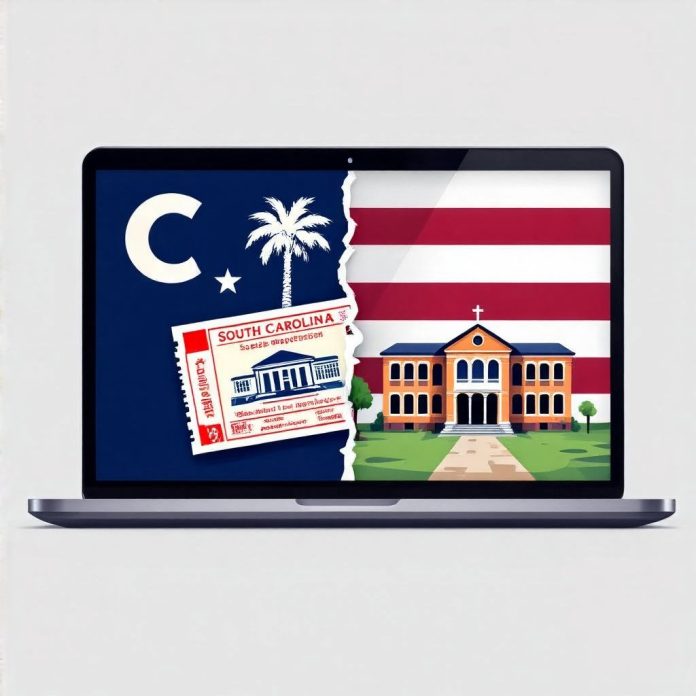Imagine a state where winning a learning lottery meant your child received a brand-new laptop, school fees covered, and a significant reduction in the financial burden of education. That’s the reality, or at least the potential, for up to 10,000 South Carolina students thanks to a newly enacted law. While the prospect of alleviating the cost of public schooling for select families is undeniably appealing, the details and implications raise some critical questions about equity and the broader educational landscape.
The initiative, while seemingly generous, is essentially a targeted voucher program disguised as tech support. Instead of directly funding schools, taxpayer dollars are earmarked for specific students, allowing their families to purchase services and equipment, including laptops, up to a value of $7,500. This approach, while potentially empowering for participating families, could inadvertently exacerbate existing inequalities by creating a two-tiered system. The ‘winners’ receive personalized support, while the vast majority of students continue to rely on potentially underfunded and under-resourced schools.
One immediate concern is the selection process. How will these 10,000 students be chosen? If it’s truly a lottery, then it’s inherently arbitrary. Some deserving students will benefit immensely, while others, equally deserving, will be left out simply due to random chance. This lack of predictability undermines the principles of fairness and equal opportunity that should underpin public education. A more equitable approach might involve prioritizing students from low-income families or those attending underperforming schools, ensuring that resources are directed where they are most needed.
Furthermore, the focus on laptops, while important in today’s digital age, risks overlooking other critical factors that contribute to a quality education. Are schools adequately staffed with qualified teachers? Are there sufficient resources for extracurricular activities, libraries, and specialized programs? Simply providing a laptop doesn’t address these fundamental needs. A more holistic approach would involve investing in the overall improvement of schools, ensuring that all students have access to a well-rounded education.
Ultimately, while the intention behind this South Carolina law may be laudable – to ease the financial burden on families and promote digital literacy – its execution raises serious concerns about equity and the potential for unintended consequences. A more sustainable and equitable solution would involve investing in systemic improvements to public education, ensuring that all students, not just a select few, have the opportunity to thrive. Instead of relying on a lottery system, let’s focus on creating a level playing field for all South Carolina students.



